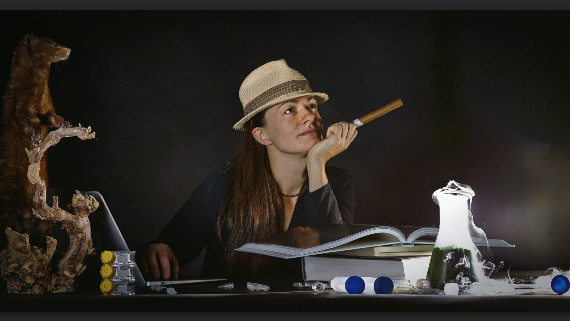
Annelie Wendeberg Q&A
She’s an adjunct professor, blogger, workshop giver, mentor, occasional editor, and she’s an extremely original and creative author. I recently got the chance for a quick Q&A with her and to ask her about growing up, life, the positive and negative sides of being a writer and a few other aspects of her journey so far.
Hello Annelie and thank you very much for taking the time to speak with me today.
Q)The first thing I’d like to ask you is what made you decide to be an author to begin with, and how long have you been writing for?
A) Thank you for having me, Dale! As a kid, I used to do a lot of realistic pencil drawings, but I could never do anything creative – only copy what was there. It wasn’t very satisfying. As a scientist, I developed molecular techniques, which was very creative and satisfying. But as soon as I was (still am) head of a research group and became an adjunct professor, I sat on my butt, juggled with bureaucratic crap, and didn’t solve scientific problems any more. After a few years of that, the pent-up desire to be creative led me to writing, I think. I find it fascinating what words do to us. You can write a story and the first draft is usually crappy and you don’t feel anything but blah when reading it. But then you re-write and edit, and suddenly, the story comes to life and strikes a cord. The best is that it affects every reader in a unique way, because every single on of them brings in their own story, their own beliefs, and experiences, and this flows together with my story, which again is partly based on my own experiences, believes, and partly on my imagination. Sort of a Vulcan mind melt gone crazy.
How long I’ve been writing? Hm. As a scientist, one has to write and publish. We say, “Publish or perish,” because a scientist who doesn’t write will soon be unemployed. So I write since I’m a scientist, more or less since 1998. But really, you don’t want to read such stiff and bloated prose. Later, I started with the science blogging, because I find it important that science is communicated to the public in an understandable way. How else would anyone learn about climate change and biodiversity loss, if we scientists don’t learn to express ourselves without hiding behind jargon? Fiction writing is a rather new addition to my writing adventures. I started in December 2011 and self-published my first book nine months later.
Q) Yes I understand that you actually studied biology at university. Is that something you’d always wanted to do, and do you feel as though that’s helped you as an author?
A) I always wanted to be a biologist, but that wasn’t possible under East German regime. Only after the wall fell could I go to college and university (despite my poor grades).
Being a sc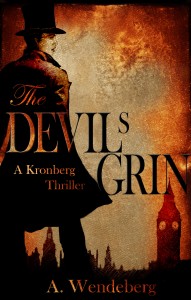 ientist helped fiction writing in two ways: (A) analytical thinkers can analyse text better and find out why it does what it does to us emotionally, and (B) we scientists publish without ever having learned how to write, so it wasn’t so scary for me to consider self-publishing.
ientist helped fiction writing in two ways: (A) analytical thinkers can analyse text better and find out why it does what it does to us emotionally, and (B) we scientists publish without ever having learned how to write, so it wasn’t so scary for me to consider self-publishing.
Q) It looks as though you had an active part to play in the fall of the Berlin Wall also, as you mention on your website that you took hammer and chisel and personally helped contribute to tearing the wall down. Do you feel as though that was really the beginning of your creative journey, as you must have felt very restricted before the wall fell?
A) Yes, the fall of the communistic dictatorship certainly allowed for more room for creativity. Before the wall fell I went to a very restrictive school. One was only a good pupil if one was able to repeat what the teacher said (with most teachers, not all). Having an understanding was secondary at best. That was boredom galore!
After the Wall fell, I went to a different school and suddenly I was allowed to think and interpret. What a culture shock! Strangely, I began to enjoy school!
Q) What was your life like when you were young, given that growing up with low latent inhibition can be extremely frustrating as it is, without the restrictions of growing up in a communist society?
A)I don’t ever want to repeat childhood. It was normal that I don’t belong, it was a given to most people I knew. I was convinced that one day, I’ll end up in a mental institution. It didn’t help that I had epileptic seizures that made my senses super-sensitive just a few minutes before the seizure struck, and for up to two days after it. How do you tell anyone that what you see, hear, and smell seems unnoticeable to others without giving the impression that you’re mad? The funny thing is that back then, the physician told my mother, “She’s a girl. Blood circulation problems are normal.” LOL.
Q) Obviously school wasn’t an enjoyable experience for you, but were you already enjoying expressing yourself through writing at that stage in your life, or did you find that the writing came later?
A)School screwed up my love for stories and books for about twenty years. I tried to write a diary, but I found that boring and depressing. The only things I read after school were academic papers and books. The writing came much, much later. It really started bleeding out of me in December 2011 when we moved into our house from 1529. That place is lovely, crooked, and somehow seems to stimulate creativity (in whatever way).
Q) In what ways do you feel that having low latent inhibition has influenced your work as a writer? Do you find it hard to collect all of your thoughts when you first have an idea for a book, and do you have a process that makes it easier for you to remember everything you would like to include when writing?
A) That’s hard to say because I don’t have a comparison; I’ve always only had that one funny brain. But isn’t it the essence of the arts that one can show people their own world from a unique angle and open horizons? Actually, science does that, too, but in a different way. Maybe everyone who explores life, the world, reality, and one’s own perception and the limits of it, and then finds a way to express this, is an artist. Or a vulnerable human being.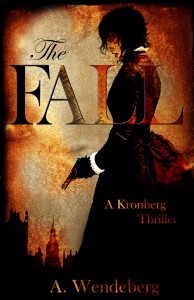
Q) Is there a common theme within the majority of your books? For example do your character often share traits that you yourself have, or do you try and ‘escape’ from yourself when writing?
A)Science and kiss-ass heroines are my common themes. I sneak in stuff like history of medicine, climate change, and the current pandemics (HIV/Aids, tuberculosis, and cholera are the global epidemics right now. It’s not Ebola), but my stories are always character-driven, because it interests me most what’s going on inside people when I throw them into a crisis.
The main character of my historical thriller series has LLI – she doesn’t know it, because the term didn’t exist in the Victorian era. She can’t filter out background noise, doesn’t understand why people are generally blind to details and slow to comprehend, and where “normal” people have something resembling a tunnel vision, her vision is much broader. That also hampers her because she has problems focusing on one thing only.
The main character from my science fiction series is synesthetic; to her, words have a flavour. Writing her is very enjoyable but also difficult – how does one put words to a word-flavour when sometimes, there is no good reference? For me, writing is both self-exploration and pushing my own limits of perception.
Q) What would you say your biggest frustration has been during your life as an author?
A)That each day always has only twenty-four hours.
Q) Who do you feel helped inspired you to write when you first started, and who or what inspires you to write these days? Do you have any favorite authors, and which are your favorite genres to read yourself?
There’s no one particular thing that inspires me; I can’t specifically put a finger on anything. Maybe life? I never managed to have one favorite author or one favorite genre. I’m rather eclectic when it comes to stories.
Q) One of your books ‘The Devil’s Grin’ involves an incredibly imaginative and creative character, a woman who masquerades as a man in order to practice medicine in Victorian London. I believe she even crosses paths with Sherlock Holmes. How did you come up with that idea, and was it difficult to write from the perspective of someone living in the Victorian era?
A)The Victorian era is intriguing because people there are already “modern” – they had machines, long-distance travelling with ships and trains, and long-distance communication using telegraphs. But they lived before antibiotics were discovered. Imagine London, a city with millions of people without proper sanitation, with roughly eighty thousand prostitutes, but without condoms and antibiotics. They used arsenic to treat syphilis, for crying out loud! They had cholera, tuberculosis, and other gruesome diseases. For a microbiologist, the Victorian London has tons of story material. But it’s also of general interest, because humanity today is moving towards the post-antibiotic era. The WHO keeps warning about the rise of multi-drug resistant tuberculosis strains and declared this a public he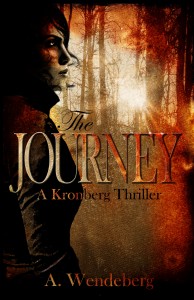 alth crisis. There are approximately 900,000 new cases of multi-drug resistant TB each year – TB that’s near impossible to be cured with the antibiotics we have available (and you thought Ebola is a problem).
alth crisis. There are approximately 900,000 new cases of multi-drug resistant TB each year – TB that’s near impossible to be cured with the antibiotics we have available (and you thought Ebola is a problem).
The other intriguing thing about the Victorians is that women back then had very few rights. They were not allowed to vote. They were expected to sit at home, look pretty, and serve their husbands. Throw in an intelligent and driven heroine and it gets quite interesting. Oh, Sherlock Holmes – he kind of sneaked in. I read Conan Doyle for the first time when I began writing this story and he just wouldn’t leave my crime scenes. I found him fascinating, because in my mind the man definitely has LLI.
Q) Do you find writing novels a very draining activity in terms of how you feel once you finally finish? Once you’ve finished a novel do you sit back and take a break for a while or are you quickly thinking up ideas for the next project?
A)Writing is very energizing. It’s the re-writing and the editing forty or fifty times that are draining. Once “the thing” (= manuscript) is finally sent to the proof-reader, I hate it so much that I have to get rid of it as soon as possible (= publish).
Q) You’ve also mentioned on your website that your stories flow easier when you keep your hands busy, and as a result you’ve built up quite a large collection of scarfs and shawls. Do you feel that your low latent inhibition is partly responsible for you always needing to feel busy and always having something on your mind? Do you also feel that low latent inhibition has given you a creative edge in life, seeing as you have a wide range of talents including environmental microbiology, spinning and weaving, writing, keeping an online blog, helping mentor other writers and you’re also a workshop giver on creative science writing. It certainly seems that you love to keep yourself busy!
A)I’m unable to sit still and do nothing. Even doing one thing only is quite difficult. I have no idea if that is in any way related to LLI. I found that working with both hands (weaving and spinning needs both hands, for example) gives my thoughts a more even flow. If I don’t know how to solve one particularly difficult scene, working with both hands helps to undo the knots. But yes, I think that a certain sensitivity to one’s surroundings is needed creative work.
Q) Of all of the books you’ve written so far, do you have one which you would consider your favourite and what sets that apart from the others in terms of it’s creation?
A)Um… I always love what I write and hate what I’ve published. The book I hate the least is The Lion’s Courtship. What sets this story apart from the other books is that it’s written in third person present tense, which allowed me to switch between people’s heads and be several characters in one book. These people are very diverse and colourful – there’s a thief, a serial murderer, a do-gooder nurse, a pimp, a madam, several prostitutes, and a guy who (simply by being too slow and too busy with his own shit life), allows a gruesome crime to happen.
Q) What can your readers expect from you in the future in terms of further novels, and can you see yourself carrying on for a long time?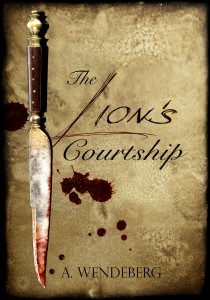
A)I’ll finish the second science fiction book in December (I hope) and maybe start the next book in the Kronberg thriller series. Or write book 3 in the SF series. That’s not decided yet. Uh! Wait! There’s a fantasy novel in the pipeline, too. The problem is that as much as I like multitasking, I can’t write three books simultaneously. Maybe I’ll learn this one day? But yes, I’ll certainly keep writing for years.
Q) If you have any words of advice for people either with or without low latent inhibition who are looking to become writers, what would your advice be?
A)If you know that this is the thing you absolutely must do and you love it and you hurt when you find no time or space do it, then WRITE. Work hard, and I mean HARD. You have a demanding day job, five kids, a house to build, and grandparents to take care of? Then write at night and deal with the sleep deprivation later. Make art. Make it bleed.
Q) If you could do anything differently in terms of your writing career to date, what would you change and why?
A)I rarely think that way; it would be a waste of energy and time. Besides, I like my mistakes (that’s a lie, I hate them) – they force me to learn. I’m not particularly afraid of failure, at least not to such a degree that the fear holds me back from trying new things.
Thank you very much for your time Annelie and for those who’d like to visit Annelie’s website you can do so by going to http://www.anneliewendeberg.com/ and you can also purchase any of her books via Amazon HERE.